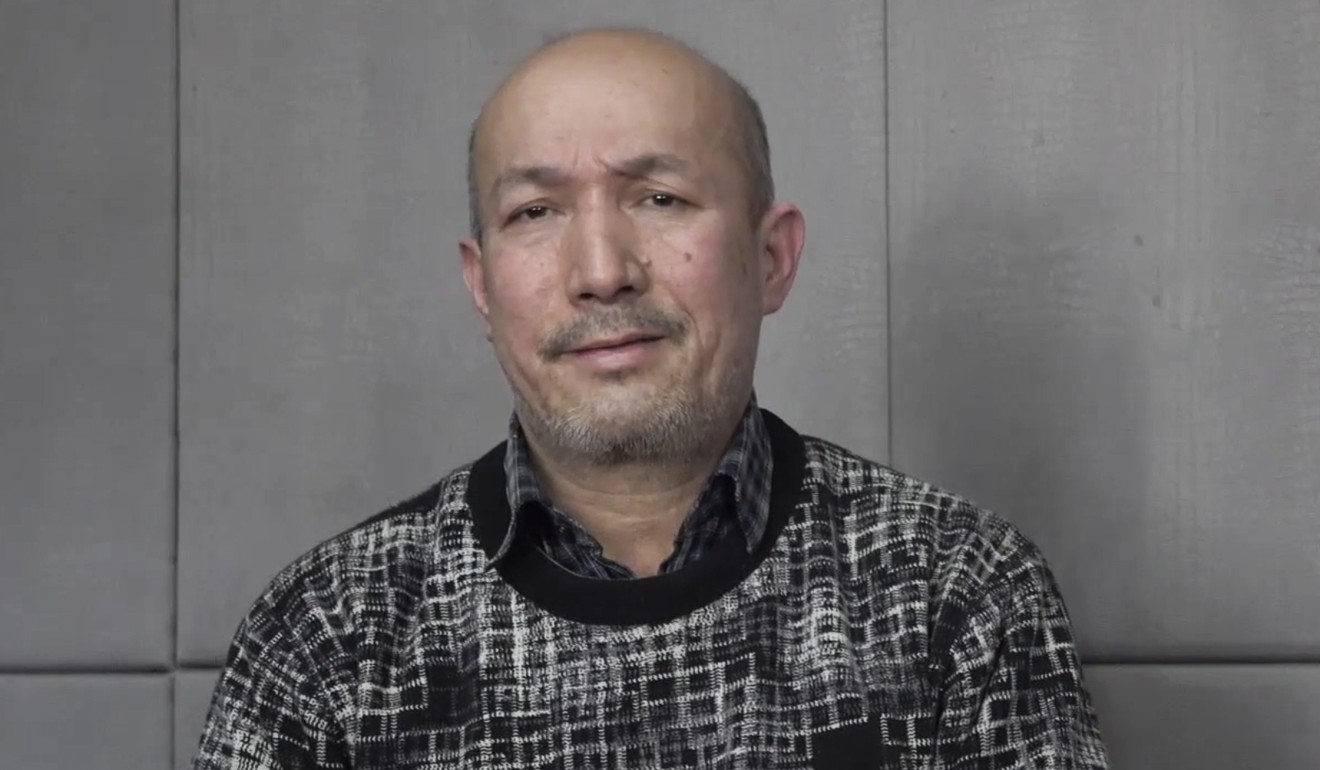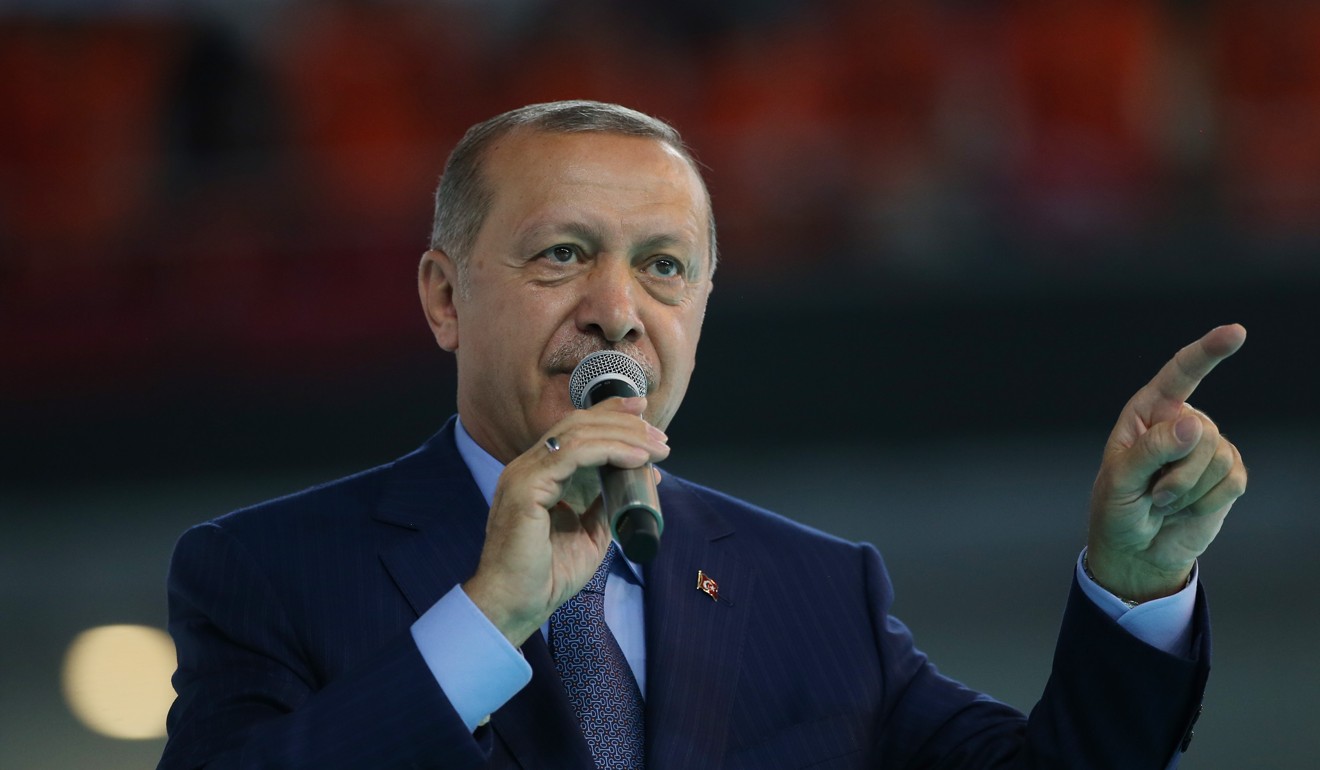
Turkey’s row with China over Uygurs unlikely to affect relations in long term, analysts say
- Initial outcry from Ankara possibly driven by political pressure as elections loom in Eurasian country
- Beijing does not want to alienate Turkey as it plays a key role in its ‘belt and road’ infrastructure development plan
Turkey’s stinging criticism of China’s treatment of Uygurs caught Beijing flat-footed, but it is unlikely to mar relations between the two countries as mutual interest will prevail, diplomatic observers said.
The Ministry of Foreign Affairs in Ankara hit out at China on Sunday for sending Uygurs in the western region of Xinjiang to “concentration camps”. It said the policy was a “great embarrassment for humanity” and cited the alleged death of Uygur musician Abdurehim Heyit.
China releases video of ‘dead’ Uygur poet but fails to silence critics
“The ministry’s statement on the Uygur issue was unexpectedly strong after such a very long time,” said Selcuk Colakoglu, the director of the Turkish Centre for Asia-Pacific Studies in Ankara.
Beijing is facing increasing pressure from the United Nations and Western governments over Xinjiang, where nearly 1 million ethnic Uygur Muslims are reported to be held. China called the centres “re-education camps” and said they were part of measures to fight terrorism.
China said Ankara’s comments were “vile” and published a video apparently showing Abdurehim Heyit was alive. It also issued a travel alert to Chinese citizens resident in or planning to visit Turkey.
But after several sharp exchanges, the diplomatic row now appears to be over, frustrating the hopes of human rights campaigners that Turkey would lead the Turkic-speaking community in a campaign against China.
“It is no mystery why the Turkish government took this stance as they are entering local elections that will be held on March 31,” said Guo Xiaoli, a researcher at the Centre for Arab and Islamic Studies at Australian National University in Canberra.
Turkey is in an economic crisis where food prices have hit a 20-year high because of inflation. President Recep Tayyip Erdogan’s AK Party, which has dominated Turkish politics since 2002, risks losing large cities including the capital, Ankara.

Both Colakoglu and Guo believe the Erdogan government is trying to win votes for the election, while the opposition has campaigned in support of China’s Turkic Muslim minorities.
Turkey has a strong cultural connection to the Turkic-speaking Uygurs and has been a destination for Uygur refugees fleeing China for years.
Show us proof: Uygurs ask Beijing for videos of missing relatives
In the long run, experts do not expect Turkey and China to ramp up the rhetoric on the Uygurs while their economic and geopolitical ties bring them closer.
“It is not the first time for China to encounter Turkey’s comments. In most cases, the Chinese government has taken a relatively mature approach to Turkey’s impulsive comments during elections,” Guo said.
“This shows that China does care about its relations with Turkey … and this is most likely because of Turkey’s growing salience in regional value to China’s ‘Belt and Road Initiative’.”
China has bought a Turkish port, and agreed to co-develop airline and telecommunication businesses with Turkey under the banner of the initiative that aims to expand Beijing’s influence through infrastructure building.

Turkey’s relations with China have blossomed at a time of soured relations with the US and Western powers. An attempted coup in Turkey in 2016 was, according to Erdogan, was led by a US-based cleric.
When the value of the Turkish currency dropped by more than 40 per cent in the middle of last year, China loaned it US$3.6 billion to fund infrastructure projects.
China and CNN in row over Uygur’s account of Xinjiang deaths
Umit Alperen, a researcher at Turkey’s Suleyman Demirel University, said the economic interests of China and Turkey were aligned.
“[If the economic relations go sour] … China could lose a potential economic and political partner not only in the Middle East but also in the Balkans, in the Caucasus, even in Europe,” he said. “Turkey strongly supports and contributes the belt and road plan. Without Turkey, that success will go down.”
Tugrul Keskin, a professor of international relations at Shanghai University, said he did not think Turkey’s current harsh tone on China would make a difference to their long-term relationship.
“Turkey cannot ignore the Uygurs and their living conditions, whereas China is very suspicious about Turkish support for the Uygurs. This is the hard reality of Turkish-Sino relations and they cannot overcome this. The future of Turkish-Sino relations will not be different to the past,” he said.
“If we look back at the past 20 years of Turkish-Sino relations, when there is an issue, that issue is the Uygur conflict. This is the reality of this uneasy partnership. And it will not progress.”

